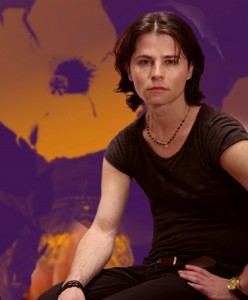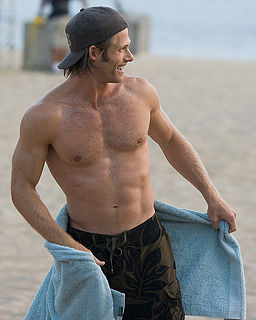A Quote by Scott Turow
I have a hard time isolating what it is in myself that makes me so fascinated with the theme of identity, because I came from a normal upper middle-class family. And yet, as I look back at my books, the uses of power, issues of identity, they have - it's recurrent. It happens again and again.
Related Quotes
To me, paintings are about beauty. They are very feminine, and beauty is something very feminine. For a long time, people would talk with me about identity. I don't have issues with identity, I just follow this kind of feminine beauty because I became a victim of my art, which I think is the best thing for an artist. So many artists use their talent, but with the best artists, their talent uses them.
Practically everyone I know now is from a middle- or upper-middle-class background, and I no longer have the huge chip on my shoulder that I carried around for so many years. I'm not sure it comes out much in the work, but coming from this kind of background is absolutely central to my identity, to my sense of who I am.
It's hard enough to be a middle-school kid, because you're dealing with so many facets of your identity - you're changing socially, you're changing physically, you're changing emotionally, everything is in flux, and to put race on top of that as well and have to figure out your racial identity is extremely hard.
The identity of just one thing, the "clash of civilization" view that you're a Muslim or a Hindu or a Buddhist or a Christian, I think that's such a limited way of seeing humanity, and schools have the opportunity to bring out the fact that we have hundreds of identities. We have our national identity. We have our cultural identity, linguistic identity, religious identity. Yes, cultural identity, professional identity, all kinds of ways.
I feel like I spent so much time trying to understand my identity and my identity as an artist. But when all is said and done, at this age, I feel the most like I felt when I was 11. And all those talents I had when I was 11 and 12 - I'm letting them sort of happen again. I can't speak for men, but for women - we go back to a kind of pre-adolescent state when we were superfree and supercool.
When I look at the directors that I really love, who really develop their films over time, they're almost always the ones who go back again and again and again at the same investigations. I think that when somebody has a theme they go after, it's fun to service that. It's like, "I know you now. I know what you go at." It helps you locate yourself a little bit quicker in their world.
When I came to Nashville, I was sort of experimenting with a new identity, experimenting with the country world and country writers. I realized I needed to take a step back from that, to be true to some of the music I've been doing over the years and to put that into the world before I move forward and redefine myself again.






































